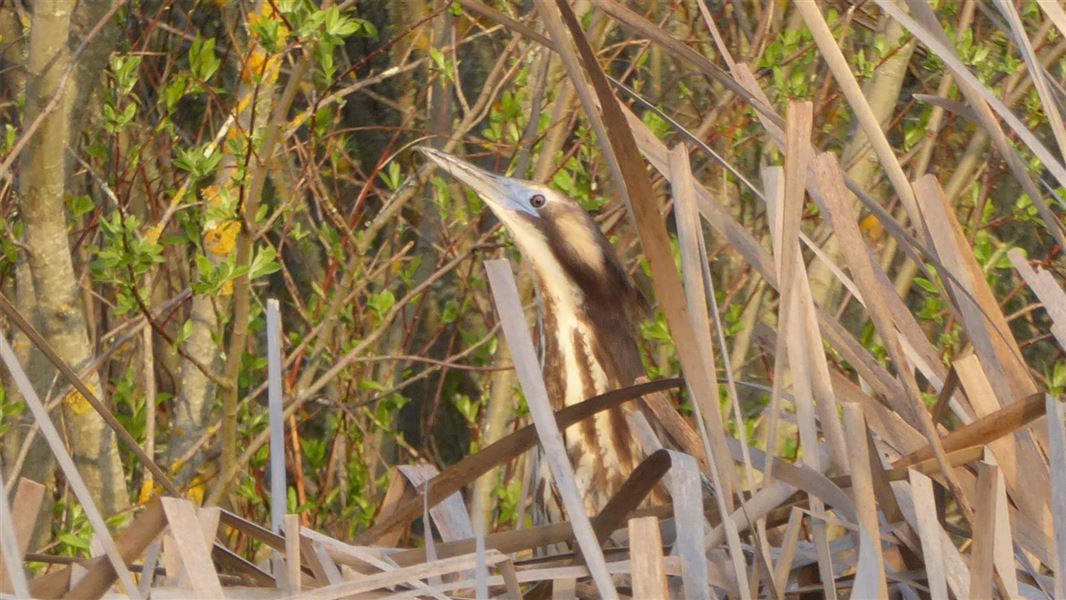Date: 03 September 2024 Source: Department of Conservation, Love Bittern and Bittern Conservation Trust
An advocacy and education project involving the Bittern Conservation Trust, Love Bittern and DOC, the Great Matuku Muster calls on people to listen for the “boom” or “whoomp” sound made by male matuku-hūrepo/Australasian bittern in spring.
Shy and elusive, matuku-hūrepo are classified as “threatened – nationally critical”, with an estimated New Zealand population of less than 1000 individual birds. Their habitat is generally wetlands, where they are seen as an indicator of wetland health.
Wendy Ambury of Love Bittern says The Great Matuku Muster events are one day each month on and around Saturday 14 September, Saturday 19 October and Saturday November 16, for up to an hour from sunset.
The muster is supported a series of workshops around New Zealand help people learn more about the cryptic species and know what to listen for.
“We’re keen to have volunteers around the country sitting somewhere safe on the outskirts of their local wetland to record male matuku-hūrepo booming.
“Volunteers are supported in most cases by regional coordinators who can help qualify and assign listening spots to optimise their reach.
“This may just be the best chance New Zealanders have of seeing or hearing a matuku in their lifetime!”
Bittern Conservation Trust spokesman John Sumich says only a large landscape scale monitoring activity can give an accurate idea of the matuku-bittern population. The birds are highly mobile and if the count is not done at the same time across the country, some birds may be counted twice.
“The Great Matuku Muster is a great event but its maximum usefulness, as with all monitoring, is with future repetition.”
“It is really gratifying to see an initial community-initiated exercise supported by DOC and other agencies.”
Henry Caley, a DOC Science Advisor who specializes in matuku-hūrepo, says the birds face a range of threats – including habitat loss, introduced predators and disturbance.
DOC is practicing methods for monitoring bittern and their calls, and staff involved in that work welcomed the chance to involve communities in expanding matuku-hūrepo surveys.
“The global population of these remarkable birds continues to decline, so The Great Matuku Muster is hugely valuable in raising awareness of their plight and presents a method to do our largest population counts to date.
“Long-term repeated annual surveys will be very informative for the management and protection of this species.”
For more information on The Great Matuku Muster:
- Visit Love Bittern website.
- Contact Wendy at lovebittern@gmail.com or the Bittern Conservation Trust at bitternconservationnz@gmail.com
Contact
For media enquiries contact:
Email: media@doc.govt.nz
